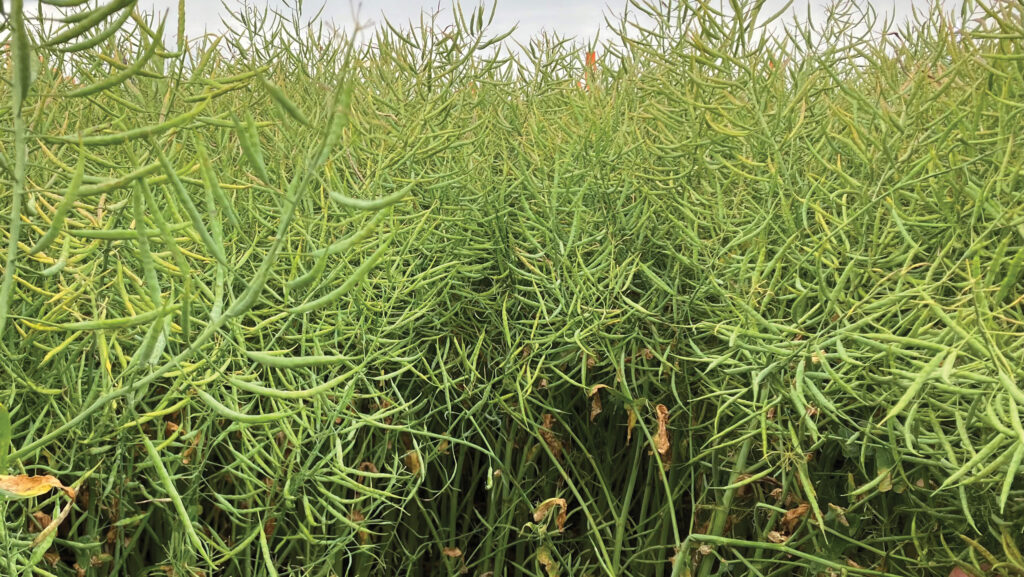Oilseeds sector holds summit to discuss future of crop in UK
 © MAG/Emma Gillbard
© MAG/Emma Gillbard More than 50 industry representatives met this week to discuss how they can “reboot” the UK’s oilseeds sector after several challenging years and a significant fall in cropping area.
The UK oilseed rape crop had the smallest harvest area for 40 years this year.
It has also suffered from low yields and disease pressure, which has driven more growers to move away.
See also: Poor OSR yields limit UK production while trade hits £380/t
Farmers, agronomists, traders, and breeders were encouraged to collaborate at the meeting in order to help bolster OSR production.
A number of factors were discussed to improve the viability of the crop, from disease control to breeding developments and policy changes.
United Oilseeds managing director James Warner opened the meeting discussing the current cropping area and how the offshoring of neonicotinoid usage had created an unlevel playing field for UK farmers.
Mr Warner said: “Seeing so many participants come together with a desire and willingness to effect change is truly inspiring.
“That collaborative spirit will no doubt play a crucial role in achieving our aims of a recovery for OSR production in the UK.
“We face a pivotal moment for OSR in the UK, and it is only through collaboration that we can drive meaningful change — both in the immediate future and for the long term.
“I am deeply passionate about the future of this crop and will be relentless in pushing this agenda forward.
“In the weeks, months, and years ahead, I hope we can build on the momentum from the meeting and work together to transform the prospects of this iconic crop.”
Industry updates
The impact of increased imports on the crushing sector was covered at the meeting by ADM Erith’s general manager, Rory Blacklock.
Research, breeding and pest management presentations were provided by AHDB lead crop protection scientist Sacha White and Rachel Wells from the John Innes Centre.
Agricultural Industries Confederation’s (AIC’s) head of combinable crops, Rose Riby, provided an update on potential policy changes.
Ms Riby said: “The ideas shared in this meeting complement the policy work led by AIC to advocate ways to increase the area grown domestically in the face of current challenges.
“We look forward to ramping up these efforts over the coming months.”
